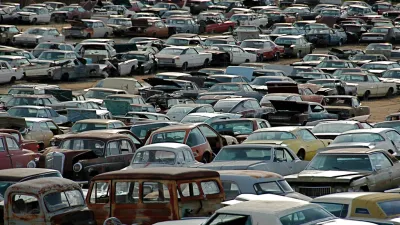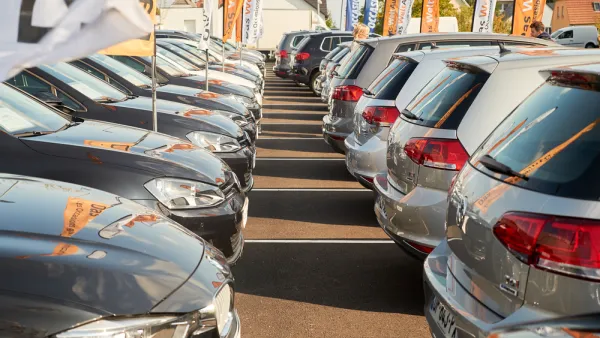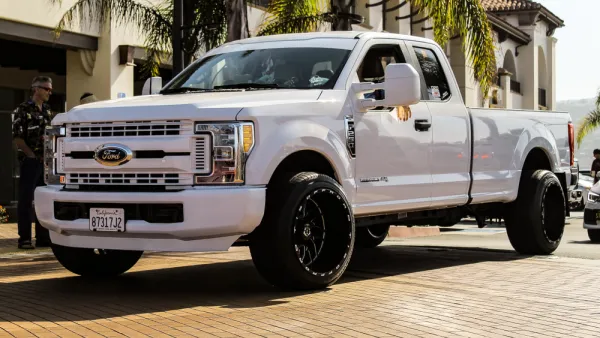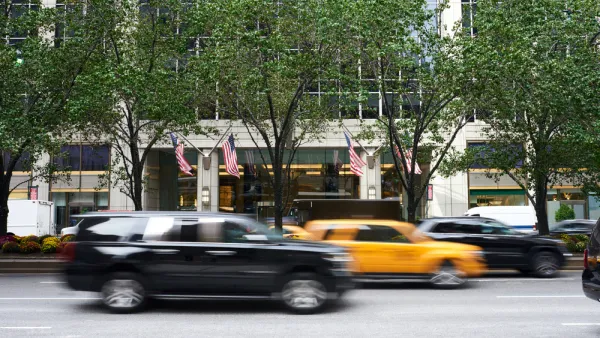More people are buying cars, even while more people are choosing to go without cars.

Bruce Schaller pens a guest column for CityLab that builds on the findings of his 2018 report: "The New Automobility."
From the title of that report it can be inferred that the report focuses on the changing nature of personal mobility. Between ride-hauling, car sharing, bike share, and electric scooters, these new options have the potential to be transformative.
But the societal benefits of this new era of transportation are still unclear. In fact, according to American Community Survey data identified by Schaller, the "ditch your car" of proponents of transportation technology are far from being realized.
Household vehicle ownership has increased in cities where Uber and Lyft are most heavily used, using 2012 (the year the companies started offering affordable everyday ride services like UberX) as the starting point. Moreover, the rate of vehicle growth substantially exceeded population growth in five of the eight cities (Boston, Los Angeles, New York, Philadelphia and Chicago).
Still, the picture is contradictory, according to Schaller:
At the same time, more urban households also have no or relatively few cars. These households are often referred to as “car-free” (no cars available to the household) or “car-light,” e.g., a working couple that owns one vehicle. (For data availability reasons, “car-light” is defined here as households with fewer vehicles than workers.)
Schaller also provides insight into how to reconcile these seemingly contradictory trends. One powerful trend sticks out: the growth of "car-rich" households, households with at least one car, is driving the overall increase in vehicle ownership. That's true for many cities, but especially Los Angeles, according to Schaller.
For more data-based analysis of the role of the automobile in contemporary U.S. society, see also a recent article by Steven Polzin titled "Transportation 2019—Looking Back, Looking Ahead."
FULL STORY: In a Reversal, ‘Car-Rich’ Households Are Growing

Analysis: Cybertruck Fatality Rate Far Exceeds That of Ford Pinto
The Tesla Cybertruck was recalled seven times last year.

National Parks Layoffs Will Cause Communities to Lose Billions
Thousands of essential park workers were laid off this week, just before the busy spring break season.

Retro-silient?: America’s First “Eco-burb,” The Woodlands Turns 50
A master-planned community north of Houston offers lessons on green infrastructure and resilient design, but falls short of its founder’s lofty affordability and walkability goals.

Test News Post 1
This is a summary

Analysis: Cybertruck Fatality Rate Far Exceeds That of Ford Pinto
The Tesla Cybertruck was recalled seven times last year.

Test News Headline 46
Test for the image on the front page.
Urban Design for Planners 1: Software Tools
This six-course series explores essential urban design concepts using open source software and equips planners with the tools they need to participate fully in the urban design process.
Planning for Universal Design
Learn the tools for implementing Universal Design in planning regulations.
EMC Planning Group, Inc.
Planetizen
Planetizen
Mpact (formerly Rail~Volution)
Great Falls Development Authority, Inc.
HUDs Office of Policy Development and Research
NYU Wagner Graduate School of Public Service




























